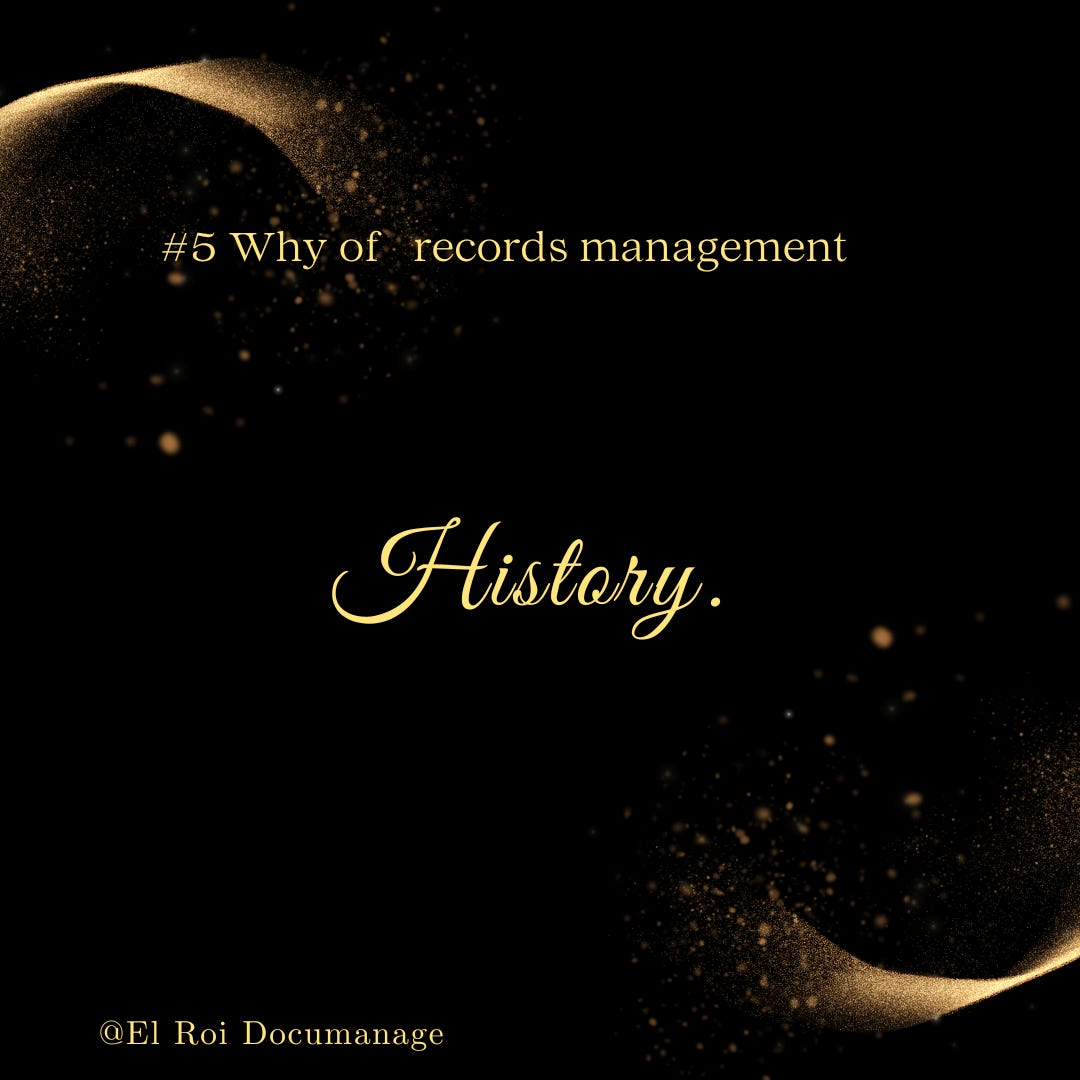Case-in-point: Organizational history preservation.
Every organization is making today history irrespective of size and time of establishment, if by any chance any organization wades through their daily operations, transactions, recruitments, AGMs, departmental meetings, board meetings, production procedures, policy formulations, strategic meetings, root cause analysis (RCA), risk managements, projects planning and implementations, customers’ feedback, job completion certificates (JCC), testimonials, to mention a few. All these are the pieces that makes up the history of an organization and like I said earlier, if an organization wades through all these processes and incredible moment without a proper preservation of these times to create history, then hope might be lost for the future and there won’t be anything from the past to pride on.
Let’s further look into the classes of records that have long duration, and some have eternal value for as long as the organization lasts, note, the list is generic therefore, filter it and highlight the ones that are relevant to your organization.
Charters, constitutions, and bylaws with amendments and revisions
Meeting minutes, agendas, and supporting documents
Procedures manuals and handbooks
Organizational histories
Interviews with founding members, past presidents, and board members
Biographies of past and present executives
Board files
Rosters of trustees, officers, and committee chairs
Program files
General ledgers, journals, budgets, and financial records
Contracts, insurance policies, and legal documents
Deeds, surveys, architectural drawings, and building and property records
Important correspondence
Program files
Reports
Photographs
Audiovisual materials
Clippings, press releases, or articles
Artifacts such as event materials
Awards, memorials, and citations
Publications such as bulletins, brochures, and newsletters (For publications with many copies, keeping three copies each is sufficient).
· Every organization has a history; ideally, institutions should organize and preserve their records for the future. Written records are often the only source of information about an institution’s early intentions and activities, and these documents provide institutional knowledge about the organization’s establishment, by whom, and what programs and activities it created.
· Organized, accessible records provide information for decision-making. In addition, the documentation offers an institutional memory to resolve legal disputes; facilitates accountability to clients, parent organizations, or regulatory bodies; saves time, effort, and money; assists in planning for anniversaries or special events; instills pride in the past; and inspires hope for the future. Archival records can also recognize long-term employees and measure the organization’s growth and development.
Let El Roi DocuManage preserve the history of our organization today.
Click the link below to read more on this subject matter.




